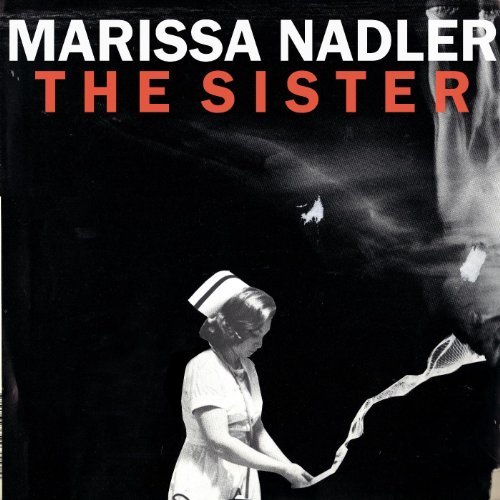
Marissa Nadler
The Sister
Release Date: May 29, 2012
Genre(s): Pop/Rock, Alternative/Indie Rock, Alternative Pop/Rock
Record label: Box of Cedar
Music Critic Score
How the Music Critic Score works
Buy The Sister from Amazon
Album Review: The Sister by Marissa Nadler
Fairly Good, Based on 10 Critics
Based on rating 9.0/10
In life, there are cathartic moments through which we embrace our greater selves, exorcising the torrential past while divesting pain, stress and other emotional barriers. Indeed, self-actualization can be a blissful breakthrough, especially when those previous struggles are used to strengthen our resolve and trek into the unknown. For Boston folk singer Marissa Nadler, love and despair seemed her greatest hurdles en route to such liberation, as evidenced by last year’s self-titled album, a stellar collection of sullen melodies and lovelorn anecdotes akin to those of Joni Mitchell.
Based on rating 78%%
The Sister is Marissa Nadler’s sixth full-length album. It’s the companion to her 2011 eponymous LP, which was funded through Kickstarter. Here, the Boston songwriter reaches far beyond the precincts of Americana grassroots. The electronic experiments introduced on Little Hells continue to bloom and her character building is peerless.
Based on rating 75%%
Marissa NadlerThe Sister[Box of Cedar; 2012]By Ray Finlayson; June 19, 2012Purchase at: Insound (Vinyl) | Amazon (MP3 & CD) | iTunes | MOGTweetBeing a companion album for Marissa Nadler’s self-titled album from last year, many might assume The Sister would sound much the same. And in some respects, this assumption is correct — but only in the way all Marissa Nadler records have an inherent similarity to each other as they centre around Nadler and her guitar. The Sister, though sparser and shorter, turns out to be that bit darker than the previous record, if not perhaps a consequence of its simpler production that puts an emphasis on Nadler.
Based on rating 7.5/10
Can we please sit back, and take a moment to talk about Marissa Nadler’s voice? Hoity-toity music writers like to get caught up in how all these records twist up our insides, but sometimes all that theorizing and naval-gazing can eschew some of the more wonderful things that exist on a very concrete, very tangible, and very unpretentious plane. I like her stories, I like her frosty, double-espresso guitar, but the reason Another Marissa Nadler Album consistently pricks up ears is because her gorgeous, infinitely wandering sigh buffers us from anything that could possibly exist outside of her songs. It just feels good man, and maybe that’s too easy, we’ve all been down that impossible thought-process before – you know, that internal struggle through the imaginary rules of album ranking and resource, which, of course, completely dissolves when you’re actually listening to the music.
Based on rating 7.0/10
To press play on any of Marissa Nadler's six albums is to enter a peaceful but painful dream. Since 2004, whether over the barebones creak of the early The Saga of Mayflower May or the synthetically textured Little Hells, Nadler's records of wispy melancholy have opened outwardly like arms, inviting the listener to stay for a permanent spell. Invariably hypnotic, Nadler's music has often felt like its own self-sustaining atmosphere-- ready and able to be inhabited, suited for the repeat button, surreal in its dream-like propensity to remove the listener from the rest of the world.
Based on rating 6/10
Marissa Nadler's 2011 self-titled album saw her step outside of the confines of the narrow folk singer/songwriter genre that established her reputation and into dreamy pop and even the trappings of country-ish Americana and blues forms. The Sister, conceived as a companion album (hence its title), is its musical mirror image. Its eight songs focus on Nadler the singer and poet.
Based on rating 3/5
Marissa Nadler is the unlikely crossover artist whose music is unobtrusive enough to be played over mall speakers (which isn’t to say it’s populist, just really pretty) while also appealing to people who wear black metal band tees and favor genres of music prefaced with variants of the word ‘dark’ (a rare pass given to a folk singer, likely due to her involvement with Xasthur or maybe just recognition for her unsmiling austerity). Nadler, who writes music that is sensuously sad without being lachrymose, fittingly calls this a sister to her 2011 self-titled, and both siblings are stripped-down and staid compared to the fuller sound of 2009’s Little Hells. Delicate as gossamer while veiling a quiet defiance, these are nuanced songs that improve with repeated listens.
Based on rating 6/10
Companion albums are tricky things, since they—by definition—don’t really allow themselves to stand on their own. This is particularly difficult when the first record, the “original” document, is so strong. So it is with Marissa Nadler, who released an eponymous record last year that was the best yet in her ever-improving discography. The Sister follows as a brief companion piece comprising eight songs that run just over a half hour.
Based on rating C-
“Was it all a dream?” Marissa Nadler asks in “Constantine”, the sad mini-tale of a former rock star who spent his most successful years in a codeine-inflicted haze. “As time goes by, I hear your voice is near.” She yearns for a time before the addiction had taken its toll, for years that he may no longer remember. Put out on her own Box of Cedar label, The Sister is positioned as a sequel of sorts—or the “sister album,” as Nadler puts it—to last year’s self-titled record.
Based on rating 4/10
There's an old joke about the difference between American and European films. European films-so it goes-can open with an endless montage of clouds. American films? If you don't immediately cut to an exploding airliner, you've lost your audience..
'The Sister'
is available now

